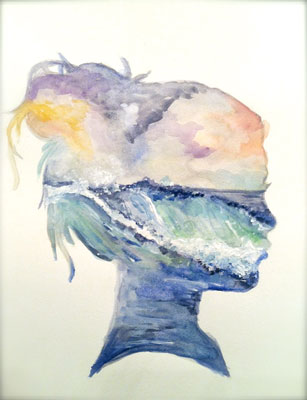All Nonfiction
- Bullying
- Books
- Academic
- Author Interviews
- Celebrity interviews
- College Articles
- College Essays
- Educator of the Year
- Heroes
- Interviews
- Memoir
- Personal Experience
- Sports
- Travel & Culture
All Opinions
- Bullying
- Current Events / Politics
- Discrimination
- Drugs / Alcohol / Smoking
- Entertainment / Celebrities
- Environment
- Love / Relationships
- Movies / Music / TV
- Pop Culture / Trends
- School / College
- Social Issues / Civics
- Spirituality / Religion
- Sports / Hobbies
All Hot Topics
- Bullying
- Community Service
- Environment
- Health
- Letters to the Editor
- Pride & Prejudice
- What Matters
- Back
Summer Guide
- Program Links
- Program Reviews
- Back
College Guide
- College Links
- College Reviews
- College Essays
- College Articles
- Back
Starfish By Akemi Dawn Bowman
Starfish is a bildungsroman novel by Akemi Dawn Bowman. The main character, Kiko, is produced as one who is, “not really good at talking to people,” (page 3). Kiko is also someone who struggles with mentally and physically abusive family members who are racist. Alongside her toxic relatives, Kiko experiences a variety of struggles throughout the novel. However, Kiko also learns precious lessons as well, such as learning how to love herself.
In the beginning of the story, Bowman almost immediately presents Kiko’s mother, Angelina, as a mentally dangerous character. Kiko’s mom is acknowledged as the “starfish” in Kiko’s life (Bowman expresses the term “starfish” as one who believes that efforts,’”’will never be enough,’’’ and one who, ‘“always find a way to make themselves the center of attention, because it’s the only way they know how to live,”’ (page 233). After several occasions of Kiko having highs hopes, she learns that she can not change her mother and states, “I’ve mourned the loss of the mother I imagined could exist. I accept the one I have will never be the one I need. And that’s okay,” (page 336). The mother being mentally abusive helps Kiko take in the fact that she has no control of transforming her mom or anyone to be a better person.
As Kiko grew up surrounded by racist people, including her mom, she gets influenced as to what beauty is and what it looks like. Although, her mom, had only done mental damage to Kiko by making her feel less of her worth, especially because of her physical appearance. Kiko had not been exposed to what beauty was like beyond her town’s standard stereotype. She differed from the dominating population of her hometown, so she was often unbiased against others only because of her half-Japanese background. When Kiko ventures out to California, she views what “beauty” is, differently. She realizes that, “Beauty is unique and special and it looks different for every person in the world,” (321). She then outgrows her mother’s towering beliefs of what her mother believes is beautiful and Kiko begins to appreciate her own looks more, noting she is not alone.
Mentioned earlier, that Kiko does not do well talking to people and inferring that she is not a bold person, she most likely would be bound to struggle finding herself and who she is. Especially because of her mother’s strong power in Kiko’s life, Kiko must have felt weak and self-conscious. However, after finding her strength, being able to make decisions for herself, and learning to love herself, she was able to do things for herself. Kiko realized that she did not want to depend on someone and that she wanted to learn how to stand strongly by herself. She says, “I will be the person I need. I will be the one I can depend on,” and admits, “I’ll still panic when I’m in a crowd...I’ll probably always feel my heart thump when I think someone is criticizing me,” but finishes off positively, “I can live with that. I accept myself,” (page 336). Kiko had been tied down to her mother’s poisoning personality for her childhood, but can now reassuringly believe that there is more out there and that Kiko is not limited to being insecure under her mom’s words and beliefs.
Bowman creates a story of one being shown to victoriously experience change and growth. Kiko could have fallen into being encaptivated for eternity, but fortunately grasped the ideas of the real truth. Although it would not be easy to walk away from someone you believed and envisioned to be better, it is also toxic to let them keep you from doing such things as loving yourself or let them stop you from exploring your own potentials. Struggling deeply should not mean closing your mind to possibilities, but rather to find superior.

Similar Articles
JOIN THE DISCUSSION
This article has 0 comments.
